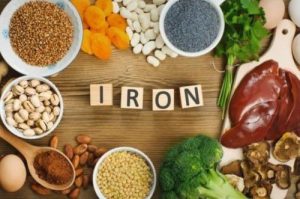Uncategorized
The Role of Fiber Supplements in Digestive Health
The Role of Fiber Supplements in Digestive Health
Maintaining a healthy digestive system is crucial for overall wellness, as it influences everything from nutrient absorption to immune function and even mood. While a balanced diet rich in fiber from whole foods is ideal, many people find it challenging to get enough fiber through their meals alone. This is where fiber supplements can play a significant role in supporting digestive health.
Fiber is a type of carbohydrate that the body cannot digest. It passes relatively unchanged through the stomach and intestines, playing a key role in maintaining regular bowel movements and overall gut health. There are two types of fiber: soluble and insoluble, both of which offer unique benefits to the digestive system. Let’s explore the role of fiber supplements, how they support digestion, and why you might want to consider adding them to your routine.

1. Improving Bowel Regularity
One of the primary benefits of fiber is its ability to help maintain regular bowel movements. Soluble fiber absorbs water and forms a gel-like substance, which can help soften stool, making it easier to pass. Insoluble fiber, on the other hand, adds bulk to stool and helps it move more quickly through the digestive tract.
Incorporating fiber supplements can be particularly beneficial for individuals who suffer from constipation, a common digestive issue. Fiber supplements like psyllium husk, a soluble fiber, can help increase stool frequency and improve bowel consistency. Regular fiber intake can help maintain the digestive rhythm, reducing the discomfort of constipation and promoting smooth bowel function.
Key Fiber Supplements for Regularity:
- Psyllium husk: Commonly used to treat constipation and improve bowel movements.
- Methylcellulose: A plant-based, non-fermentable fiber that helps with regularity.
- Inulin: A prebiotic fiber that promotes gut health by stimulating beneficial bacteria growth.
2. Supporting Healthy Gut Flora
Fiber plays an essential role in the health of your gut microbiome, which consists of trillions of bacteria that live in the digestive tract. A healthy balance of gut bacteria is linked to improved digestion, stronger immune function, and even better mental health.
Soluble fibers, such as those found in oats, legumes, and fruits, are particularly beneficial for gut bacteria because they act as prebiotics—food for the beneficial microbes in your gut. When these fibers are fermented by bacteria in the colon, they produce short-chain fatty acids (SCFAs), such as butyrate, which have anti-inflammatory properties and can help nourish the cells of the gut lining.
Taking fiber supplements that contain prebiotic fibers can help support a diverse and healthy microbiome, enhancing digestion and overall gut function.
Key Fiber Supplements for Gut Health:
- Inulin: A prebiotic fiber found in chicory root, garlic, and onions.
- Fructooligosaccharides (FOS): Another prebiotic fiber that encourages the growth of beneficial bacteria.
- Acacia fiber: Known for its ability to support gut health and digestion.
3. Alleviating Digestive Disorders
Fiber supplements are frequently recommended for managing and alleviating certain digestive conditions, such as irritable bowel syndrome (IBS), diverticulosis, and inflammatory bowel disease (IBD). For example, soluble fibers like psyllium husk can help regulate bowel movements and relieve symptoms of IBS, such as bloating, cramping, and diarrhea.
In people with diverticulosis, where small pouches form in the colon, fiber supplements can help soften stools, reduce strain, and prevent flare-ups. Insoluble fiber, found in wheat bran and certain vegetables, can help keep the colon healthy by increasing stool bulk and promoting regularity.
However, it’s essential to note that fiber should be introduced gradually into the diet to avoid potential discomfort, like bloating or gas, especially for those with existing digestive sensitivities.
Key Fiber Supplements for Digestive Disorders:
- Psyllium husk: Ideal for managing IBS and constipation.
- Wheat bran: A good source of insoluble fiber that helps prevent constipation.
- Acacia fiber: Gentle on the digestive system and may benefit those with sensitive stomachs.
4. Managing Weight and Reducing Bloating
Fiber supplements are also useful for weight management, as they help with appetite control and reduce bloating. Fiber, particularly soluble fiber, absorbs water and forms a gel-like substance in the stomach, which helps you feel full for longer. This can reduce overall calorie intake, making it easier to manage your weight.
Furthermore, fiber supplements can help alleviate bloating by absorbing excess gas and promoting smoother digestion. Insoluble fiber, in particular, can help move waste more quickly through the intestines, reducing the feeling of fullness and discomfort.
Key Fiber Supplements for Weight Management:
- Glucomannan: A soluble fiber derived from the root of the konjac plant, known for its appetite-suppressing effects.
- Psyllium husk: Can promote feelings of fullness, aiding in weight management.
- Chia seeds: Contain fiber and omega-3 fatty acids that help regulate digestion and reduce bloating.
5. Lowering Cholesterol Levels
While fiber is widely known for its role in digestive health, it also offers cardiovascular benefits. Soluble fiber, in particular, has been shown to lower blood cholesterol levels by binding to cholesterol particles and preventing their absorption into the bloodstream. This can help reduce the risk of heart disease and support overall cardiovascular health.
Fiber supplements that contain psyllium husk or oat bran are particularly effective at lowering cholesterol levels, making them an excellent addition to a heart-healthy diet.
Key Fiber Supplements for Cholesterol Control:
- Psyllium husk: Effective at reducing LDL (bad) cholesterol.
- Oat bran: Known for its ability to lower cholesterol and support heart health.
6. Improving Blood Sugar Control
For individuals with type 2 diabetes or those at risk of developing it, fiber supplements can help manage blood sugar levels. Soluble fiber, in particular, can slow the absorption of sugar in the bloodstream, helping to prevent spikes in blood glucose levels after meals. This can lead to improved blood sugar control and a reduced risk of diabetes-related complications.
Fiber supplements, when taken with meals, can reduce the glycemic index of foods, making it easier to maintain stable blood sugar levels throughout the day.
Key Fiber Supplements for Blood Sugar Control:
- Glucomannan: Helps to regulate blood sugar levels by slowing the absorption of glucose.
- Psyllium husk: Can improve blood sugar control by slowing digestion and reducing blood sugar spikes.
- Cinnamon: While not a fiber supplement per se, cinnamon can be paired with fiber to improve insulin sensitivity.
How to Choose the Right Fiber Supplement
When choosing a fiber supplement, it’s important to consider your specific digestive health needs and preferences. Here are a few factors to help guide your decision:
- Soluble vs. Insoluble Fiber: If you’re dealing with constipation or digestive discomfort, soluble fiber (like psyllium husk) may be most beneficial. For promoting regularity and adding bulk to stools, insoluble fiber (like wheat bran) is more effective.
- Form of Supplement: Fiber supplements come in various forms, including powders, capsules, tablets, and chewables. Choose one that fits your lifestyle and is easy for you to incorporate into your daily routine.
- Gradual Introduction: Start with a small dose of fiber and gradually increase your intake to avoid bloating and gas. Aim for 25–38 grams of fiber per day from both food and supplements.
- Additional Ingredients: Some fiber supplements contain added ingredients like probiotics or digestive enzymes that can further support gut health. If you’re looking for a multi-benefit supplement, these may be worth considering.

Conclusion
Fiber supplements can play a crucial role in supporting digestive health by improving bowel regularity, promoting a healthy gut microbiome, alleviating digestive disorders, managing weight, and even supporting heart and blood sugar health. While fiber-rich foods should be the foundation of your diet, supplements can help fill in any gaps, especially if you’re struggling to get enough fiber from food alone.
When choosing a fiber supplement, consider your specific digestive needs, and always consult with a healthcare professional to ensure you’re selecting the right type and dosage for your health goals. With the right fiber support, you can improve your digestive health and overall well-being, leading to a more vibrant and energetic lifestyle.


